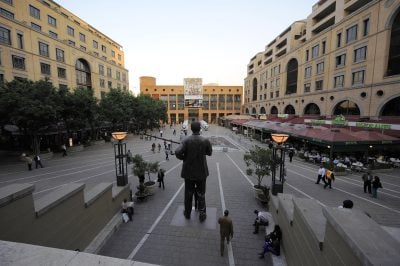The success – or otherwise – of the African Continental Free Trade Area (AfCFTA), which came into effect at the start of this year, will undoubtedly depend on the smooth and inexpensive movement of goods – in other words, efficient and functioning infrastructure.
This quest has been the bread and butter of the AFC since its foundation in 2007, and it has invested over $10bn in infrastructure projects in 35 countries, including in ports, roads and energy. The company has taken equity stakes, provided debt to projects and project development capital, often alongside other investors and financial institutions.
Sameh Shenouda, who recently joined the corporation as its Chief Investment Officer, predicts that within five years the AFC will have $10bn of funds under management, up from $7bn today.
More important than how much they invest, he adds, is how much in investments they can catalyse through their participation.
He anticipates that the ticket size of their investments will continue to be between $30m-$200m. He also expects the corporation to expand its geographical reach as well as some of the sectors.
“Right now”, he says, “we invest in power, natural resources including oil and gas, mining, transport and logistics, heavy industries and telecoms.
“These are the right sectors to be invested in,” he says, “but there is more to be done than the conventional stuff.” He mentions renewables as an area for potentially greater focus.
When it comes to transport and logistics, he says, “as well as our investments in ports and roads for example, we will look at logistics and warehousing, with linkages to the growth of e-commerce.
“Backward integration to help with the beneficiation of raw materials provides another opportunity,” he continues, “and in telecoms, with the rapid digitisation of both the private and public sector, data centres and other ancillary services are all on the radar.”
Recently, the AFC’s President and CEO, Samaila Zubairu, said that the corporation would be reconfiguring its investment approach given the current economic context, and the challenges of Africa’s economic downturn. For Shenouda, this means that organisations need to follow AFC in taking the lead and early-stage risk by focusing on project development – in other words, handling the project to financial close.
Deeper relations with sovereigns
He is excited by the approach the AFC had embarked on prior to his joining the organisation – what he calls ‘product solutions’. One such solution involves working more closely with sovereigns. In this context, he points to a transaction with the government of Côte d’Ivoire that took place in January.
The partnership arrangement with the government of Nigeria on its infrastructure fund is another such example. Nigerian Infraco includes seed capital from the Central Bank of Nigeria, (a 42% shareholder in AFC), the Nigerian Sovereign Wealth Fund, and the AFC, which can be regarded as the infrastructure specialists of the three partners. With initial funding of N1tn ($2.5bn), it is expected to grow its capital and asset base to N15tn within a few years.
Shenouda says the partnership makes great sense: “Nigeria is the largest economy in Africa and it has the largest population but its infrastructure needs a lot of development. And not only investments but also, someone who has the technological capabilities for developing complex projects in complex countries.”
Shenouda, an Egyptian national, joined the AFC from Zarou, a Blackstone-owned venture that had been launched to invest in infrastructure assets across Africa and the Middle East.
Prior to that he was head of infrastructure at CDC Group, the UK development finance institution. So infrastructure is something that he has lived and breathed.
A few days after he officially joined, the AFC board announced that it would bundle new and existing solar, wind and hydro projects into a separate unit that could eventually be floated on the LSE.
What was the rationale behind this move? He explains that the renewable sector in Africa is underserved: “We think there’s a lot that can be done and we think we are the best suited to develop these projects, but we can also bring third party capital in when we build them.”
He says the AFC already has a successful track record in that space; in general these projects are too small to be of much interest to a European, Asian or American fund. However, once you aggregate these different projects, it starts to become an appealing proposition, which also provides diversification in terms of geography and energy type.
“The objective is to build critical mass and scale it up. We have the patient capital and we have the relationships on the ground and we have the funding for that.”
Taking the lead in tough times
Discussing international investor appetite in the current climate, he admits that the impact of Covid-19 and the collapse of some commodities will add to the risk premium associated with the continent – whether justified or not.
That’s why, he points out, when AFC president and CEO Samaila Zubairu mentions reconfiguring the investment approach, the AFC has to demonstrate that it is still investing in Africa, and that infrastructure investment is still a profitable enterprise.
He also highlights the opportunity that has been brought about by the Covid-19 pandemic: “If you take the disruptions in supply that happened between China and Europe, and Europe and the US, and how dependent they were on certain manufacturers, it’s an opportunity for Africa to develop its own raw materials and build the manufacturing base that produces final products to export to Europe and other neighbouring countries.”
This is an example that is also often cited by Zubairu. The corporation, for example, invested in a bauxite mine in Guinea in 2017. However, right now the bauxite is shipped to China where it is transformed and then exported, in some cases back to Africa.
As countries and companies become more accountable for their carbon footprints, it would make both business and environmental sense to transform it locally.
Is he worried that the debts of some countries could, as a result, limit how much they can invest in, or support investments in, infrastructure? On the whole, he says he is not: “You can’t generalise when talking about the continent. Some countries are stretched but they are a minority. Privatisations will also provide revenues for governments and commodity prices are on the mend.
While he says there is no immediate need for the AFC to go to market to raise more capital, “We are always looking at ways to grow the balance sheet”, he says. “But we’ll do so when we identify the right projects to deploy that capital.”
He says the AFC is also mulling whether to exit certain investments and recycle the proceeds. As we end our conversation, he sums up: “I believe we’re perfectly poised to help transform infrastructure investment in Africa, especially because of the diversity of solutions we can offer clients – project development, debt, equity and everything in between.”
Want to continue reading? Subscribe today.
You've read all your free articles for this month! Subscribe now to enjoy full access to our content.
Digital Monthly
£8.00 / month
Receive full unlimited access to our articles, opinions, podcasts and more.
Digital Yearly
£70.00 / year
Our best value offer - save £26 and gain access to all of our digital content for an entire year!
 Sign in with Google
Sign in with Google 



